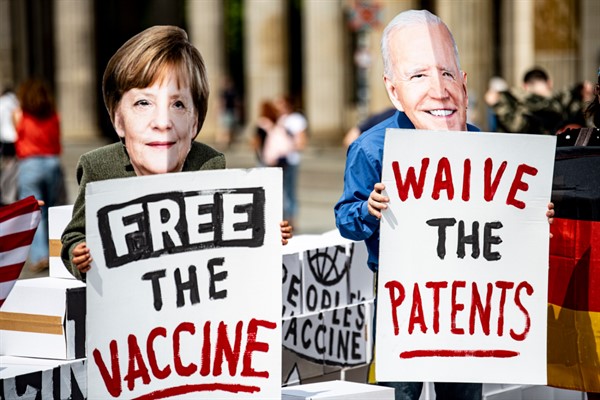For just about anyone who spends time thinking about the future of the world, the fast-unfolding competition between the United States and China looms as one of the most important issues shaping both expectations and uncertainty over the near and medium term.
The rivalry between these two countries, which boast the biggest economies and most powerful militaries in the world, is ostensibly over global leadership. The international crisis caused by the coronavirus pandemic, however, has revealed another darker reality: Where it counts most—meaning for the well-being of the largest numbers of people in the world—there is no real leadership competition. What the ongoing crisis has revealed, instead, are the stark limitations of each of these global giants’ political systems and, above all, their fundamental selfishness.
COVID-19 is currently running nearly out of control in countries as diverse and far-flung as Indonesia and Myanmar, Serbia and Jordan, Cuba and Peru. It is also on the rise in several countries in Africa, with its 1.4 billion people. Even worse, there is a near-certainty that in many of that continent’s 54 countries, official statistics are likely to be highly incomplete, helping conceal the true gravity of their public health crises. It is true that African public health systems are often chronically underfunded, but it would be hard to find a better reflection of the shocking failure of global leadership than in the astonishingly low numbers of vaccine doses distributed so far to African countries. Only 1 percent of the continent’s people have been vaccinated thus far, and in the best-case projections, international vaccine supplies will raise that number to no more than 7 percent by October.

